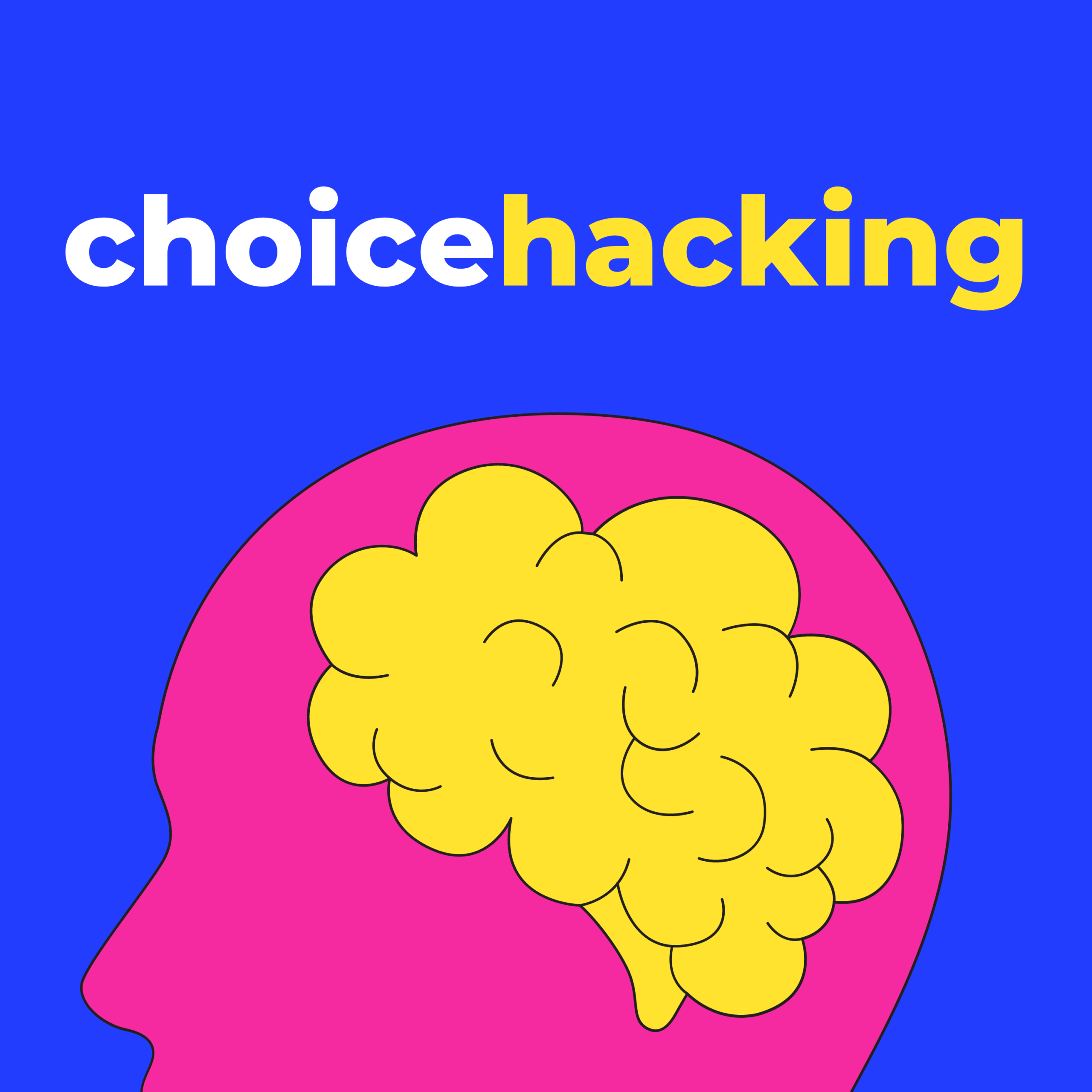
The Choice Hacking Podcast
Host Jen Clinehens explores the practical side of applying behavioral science and psychology to business through stories, interviews and real-life examples.
A top 50 management podcast in 35+ countries and one of Spotify's Top 1% most shared podcasts.
"Fantastic mini learning stories"
"Quickly becoming one of my favorite podcasts. I work in education & awareness of cyber risks for employees and have studied these concepts over the years. Great overviews!"
AwwwShucks1979
Apple Podcasts
"I stumbled on your podcast by accident but I am absolutely hooked."
"Your delivery and keeping the information in a succinct delivery is outstanding. I am letting all of my colleagues know and already applying some of the things you share."
Dennis W.
Listener email
"The Gucci of behavioural science & marketing podcasts"
"Does that say it all? Jen's content is incredible. Episodes are about 10 minutes long each. Perfect for busy pro's. Practical and entertaining."
Ruth Dale
@ruth_dale on Twitter
"Instantly fell in love with this podcast."
As a former psychology student and now marketer, I’m thrilled to hear Jen talking about how companies successfully use behavioral sciences to improve their product and services.
Every week, this podcast will give you useful tips and insights, ready to use in your own work. Same thing happens with the newsletter. Jen, keep up the great work!
adavedreaming
Apple Podcasts
